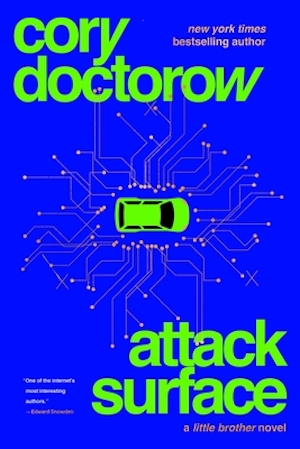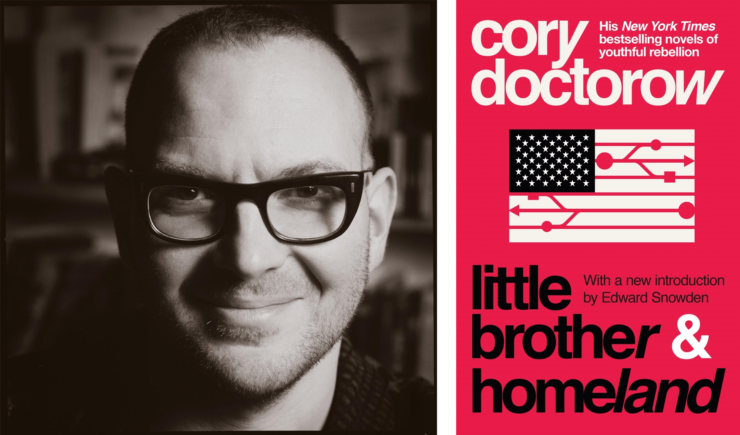To celebrate the release of his new novel, Attack Surface, author Cory Doctorow sat down with us to recap his bestselling novels set in the same universe: Little Brother and Homeland. Check out what Cory had to say, and get ready for Attack Surface, out on October 13th from Tor Books!
Transcript follows:
Little Brother is a Young Adult novel about kids who are playing hooky in San Francisco when terrorists blow up the Bay Bridge and they discover that the worst part of a terror attack is not what happens during the attack, it’s what happens afterwards when their city get’s turned into an armed police state—courtesy of the Department of Homeland Security.
They build a network of hacked, cryptographically secured Xboxes, form a guerilla army, kick the DHS out of San Francisco, and restore the Bill of Rights to California, with the help of the California Highway Patrol—Spoiler Alert!
Buy the Book


Attack Surface
In the second book, Homeland, the hero of the first one, Marcus Yallow, comes into possession of a thumb drive of amazing leaks—Leaks that reveal all kinds of government corruption up and down the scale and he becomes embroiled in a fight to publish the leaks and elect a muckraking senator to the California Senate.
And in between those two fights, he finds himself embroiled with military contractors, private surveillance outfits, public surveillance outfits, the electoral process, and the need to find solidarity with a bunch of different groups of people across the city in order to make difference in the political sphere as well as the technical sphere.
Both books are about people being really smart with technology, but they’re also books about people being really smart with technology to make change in the world politically.
The message of the books is not that you can live forever in a cryptographically secure demi-monde of your own making where oppressive states can’t reach in and get at you. Rather, that with the right technology we can organize in private and create mass movements that hold our government to account. Ultimately the best security that we have is not encryption, it’s a responsive and legitimate government.










